Category: Film
-

RR (2007)
Thirteen Ways of Looking at a Railroad (with apologies to Wallace Stevens)
-
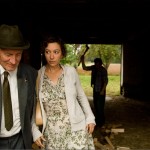
Revanche and Delta
I’ve developed a lazy habit of saying that I don’t particularly care what a film is about; I care what it does formally. But, while well-directed and wonderfully performed, the standout feature of Gotz Spielmann’s Revanche is the story, which, particularly over the last 80 minutes, is perfectly constructed.
-
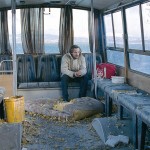
Anticipating TIFF (2008)
The Toronto International Film Festival is always the most highly anticipated week-and-a-half of my year, but this time around my eagerness to go watch movies, hang out with friends, and wander around a great city is being trumped by the more basic and urgent need for a vacation. I’m deep-down-in-the-bones tired and I can’t wait to get away and be a different version of myself for 11 days. When I got home last year, I told Joanna that Toronto has become my mistress. I’ll stand by that metaphor.
-
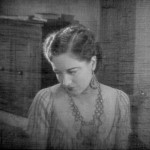
The Unknown (1927)
Melodrama is a matter of narrative and performance style, of course, but, particularly in silent cinema, the core of melodrama is mise-en-scene.
-
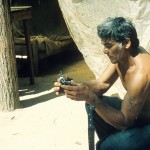
Los Muertos (2004)
What fascinates me about Los Muertos is that it explores the connection between form and content by taking all of the tropes of “transcendental cinema” and staining them, by narrative means, with dread and violence. It reminds me of Brian Eno’s answer (apocryphal, perhaps) when he was asked if he was the father of New Age music: “No, my music has evil in it.”
-
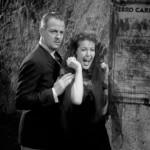
Four Men and a Prayer (1938)
The following are screen captures from two related sequences in John Ford’s Four Men and a Prayer, a remarkable (and remarkably strange) film about imperialism, globalization, and the military industrial complex that predates America’s involvement in World War II by three years.
-
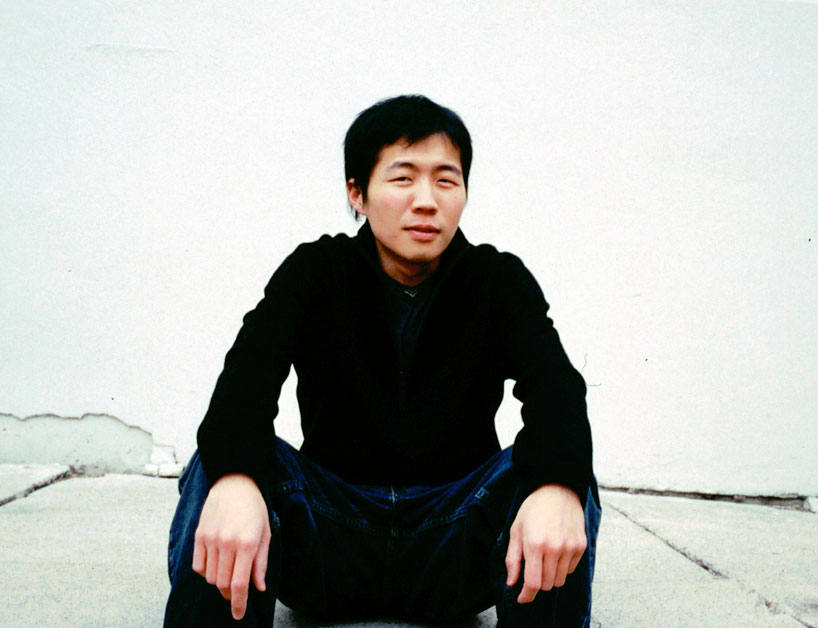
Lee Isaac Chung: The Storm of Progress
Originally published at Sojourners.
-
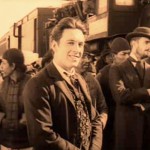
The Iron Horse (1924)
Along with simply being a tremendous pleasure to watch, The Iron Horse offers a fascinating peek into the evolution of the Hollywood film style. By 1924 — and with four dozen films under his belt — Ford already understood the mechanics of what would eventually be called standard continuity editing, and so, for me, the most interesting moments in the early films are when something breaks, as in the following sequence.
-
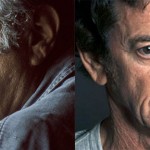
Magic and Loss
How’s this for a strange association? While marveling at Lou Reed’s performance Wednesday night, I kept thinking of Michel Subor.
-
40 Hours in 18 Images and 3 Songs
The Duke Spirit, Black Rebel Motorcycle Club, Sonic Youth, and Last Year at Marienbad.
-
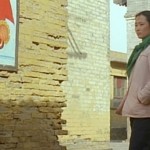
Platform (2000)
With so many directors now throwing in their cameras with the “single-shot scenes from a fixed position” school of filmmaking, there’s a growing problem for those of us who believe that a fundamental job of critics is to accurately describe what we see. Films built almost entirely from images that would have been described traditionally as “establishing shots” beg the question: How does one describe and evaluate this kind of montage (if that’s even the right word)?
-

Nora Alter on Sans Soleil
After a second viewing, I still needed some help wrapping my brain around the structure of Marker’s Sans Soleil. The following is a summary of useful ideas from Nora Alter’s book, Chris Marker.
-
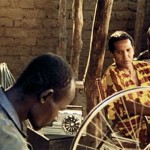
Life on Earth (1999)
Dir. by Abderrahmane Sissako “There is an organic unity to village life, but it is both fragile and alienating. In this regard Sissako refuses to either promote some pure, untouched pre-modernity or to mourn for some lost social integration. Sissako’s encompasser always has to make room for those transnational nomads who can’t quite pass muster […]
-
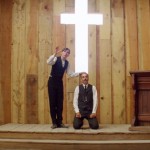
There Will Be Blood (2007)
Like nearly everyone else, apparently, I was overwhelmed by the sheer force of will in Anderson’s filmmaking but am still unsure of what to make of it, exactly.
-
The Wire, “Moral Midgetry”
Written by Richard Price (Clockers, Freedomland) and directed by Agnieszka Holland (Angry Harvest, Europa Europa), episode 33 of The Wire, “Moral Midgetry,” features two single-take shots that epitomize the radically economical storytelling that characterizes the series.
-
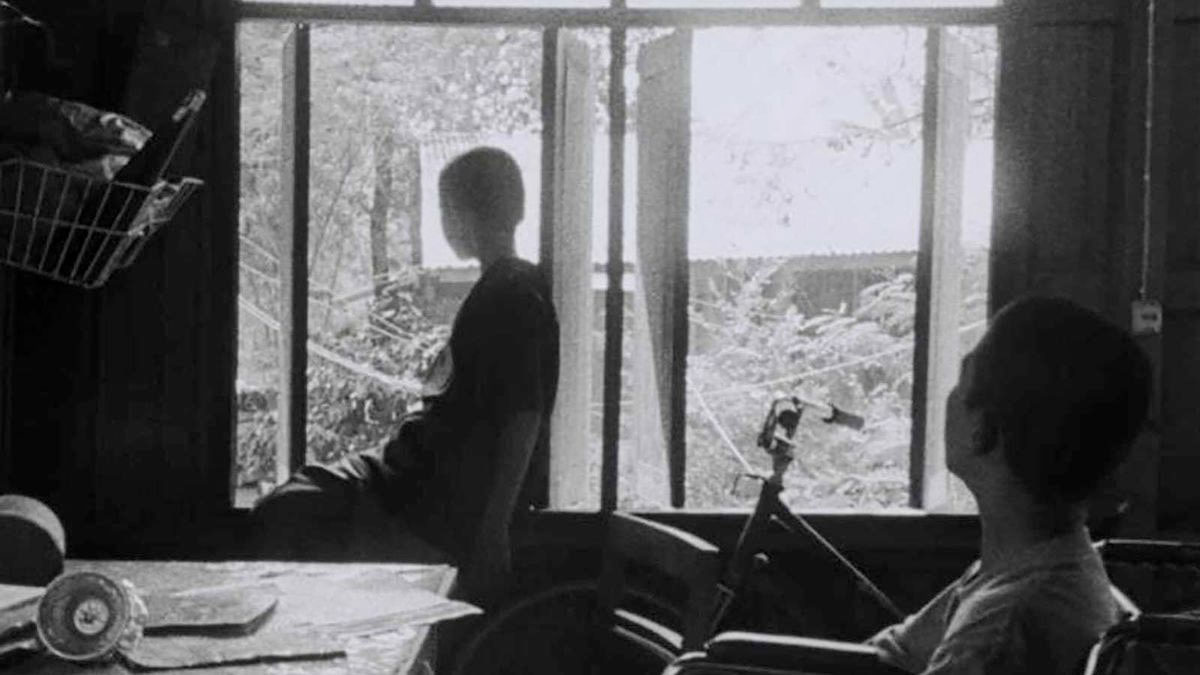
2008 Film Diary
A day-by-day viewing log of my filmwatching habits in 2008, beginning with Apitchatpong Weerasethakul’s Mysterious Object at Noon (2000) and ending with Jeff Nichols’ Shotgun Stories (2007).
-

Best Films of 2007
So here are ten favorites, in alphabetical order, with some honorable mentions thrown in, followed by my favorite discoveries of 2007.
-

A Quick Thought on Lynch and Film Violence
One reason I’m completely unconvinced by all of the critical praise being heaped on the Coens’ treatment of evil and violence in No Country for Old Men is because violence — real, non-metaphoric violence — is always sorrowful and tragic. Lynch seems to have been born with a peculiar sensitivity to that fact, and has spent his career perfecting the formal means of articulating it.
-
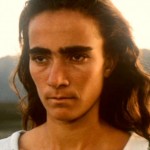
Casa de Lava (1994)
Pedro Costa’s second feature, Casa de Lava, opens with a barrage of arresting juxtapositions. The first few minutes pass in complete silence as we watch the simple white-on-black credits, followed by a montage of volcanoes.
-
Costa Close-Ups
“When one is in prison, the most important thing is the door” — Robert Bresson
-
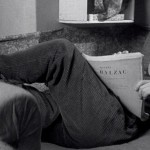
Seeking Film Suggestions
What films would you show to illustrate the spirit and lasting influence of the New Wave?
-
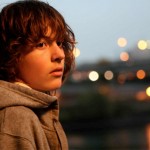
2007 TIFF Day 8
Gus Van Sant’s Paranoid Park, Lee Kang-sheng’s Help Me Eros, Nanouk Leopold’s Wolfsbergen, and Alessandro Capone’s L’Amour Cache.
-
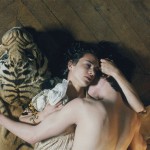
2007 TIFF Day 7
Catherine Breillat’s Une vieille maitresse, Brian De Palma’s Redacted, and Jose Luis Guerin’s Dans la ville de Sylvie.
-

2007 TIFF Day 6
Carlos Reygadas’s Silent Light, Bernard Emond’s Contre Toute Esperance, and Celine Sciamma’s Naissance des pieuvres.
-

TIFF 2007: In a Nutshell
I intend to post capsule reviews of every film I saw, but it’ll probably take another week before I get through them all. In the meantime, here’s a snapshot of the festival.
-

2007 TIFF Day 5
The Coen brothers’ No County for Old Men, Anahi Berneri’s Encarnacion, Shekhar Kapur’s Elizabeth: The Golden Age, and Bruce McClure’s Everytwo Circumflicksrent…Page 298.
-
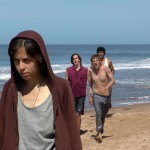
2007 TIFF Day 4
Lucia Puenzo’s XXY, Lee Chang-dong’s Secret Sunshine, Saverio Costanzo’s In Memory of Myself, Hannes Schupbach’s Erzahlung, and Heinz Emigholz’s Schindler’s Houses.
-

2007 TIFF Day 3
Naomi Kawase’s Mourning Forest, Bela Tarr’s The Man from London, Jia Zhang-ke’s Useless, John Gianvito’s Profit Motive and the Whispering Wind, and Ute Aurand and Maria Lang’s The Butterfly in Winter.
-

2007 TIFF Days 1 and 2
Marjane Satrapi’s Persepolis, Wang Bing’s Fengming, A Chinese Memoir, Hou Hsiao-hsien’s Le Voyage du Ballon Rouge, Peter Hutton’s At Sea, and Sandra Kogut’s Mutum.
-
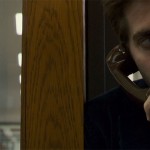
A Few Words About Zodiac
David Fincher’s Zodiac is absolutely haunted by the specter of technology and by the present-day confidence we have in its objectivity.